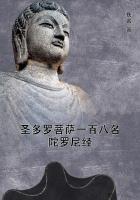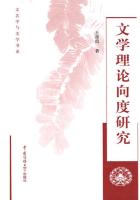Quiet years, on the whole, follow in Virginia under the Commonwealth. The three Governors of this period-Bennett, Digges, and Mathews are all chosen by the Assembly, which, but for the Navigation Laws,* might almost forget the Home Government. Then Oliver Cromwell dies; and, after an interval, back to England come the Stuarts. Charles II is proclaimed King. And back into office in Virginia is brought that staunch old monarchist, Sir William Berkeley--first by a royalist Assembly and presently by commission from the new King.
* See Editor's Note on the Navigation Laws at the end of this volume.
Then Virginia had her Long Parliament or Assembly. In 1661, in the first gush of the Restoration, there was elected a House of Burgesses so congenial to Berkeley's mind that he wished to see it perpetuated. For fifteen years therefore he held it in being, with adjournments from one year into another and with sharp refusals to listen to any demand for new elections. Yet this demand grew, and still the Governor shut the door in the face of the people and looked imperiously forth from the window. His temper, always fiery, now burned vindictive; his zeal for King and Church and the high prerogatives of the Governor of Virginia became a consuming passion.
When Berkeley first came to Virginia, and again for a moment in the flare of the Restoration, his popularity had been real, but for long now it had dwindled. He belonged to an earlier time, and he held fast to old ideas that were decaying at the heart. A bigot for the royal power, a man of class with a contempt for the generality and its clumsily expressed needs, he grew in narrowness as he grew in years. Berkeley could in these later times write home, though with some exaggeration: "I thank God there are no free schools nor printing, and I hope we shall not have these hundred years; for learning has brought disobedience into the world and printing has divulged them, and libels against the best governments! God keep us from both!" But that was the soured zealot for absolutism--William Berkeley the man was fond enough of books and himself had written plays.
The spirit of the time was reactionary in Virginia as it was reactionary in England. Harsh servant and slave laws were passed. A prison was to be erected in each county; provision was made for pillory and stocks and duckingstool; the Quakers were to be proceeded against; the Baptists who refused to bring children to baptism were to suffer. Then at last in 1670 came restriction of the franchise:
"Act III. ELECTION OF BURGESSES BY WHOM. WHEREAS the usuall way of chuseing burgesses by the votes of all persons who having served their tyme are freemen of this country who haveing little interest in the country doe oftener make tumults at the election to the disturbance of his Majestie's peace, than by their discretions in their votes provide for the conservation thereof, by makeing choyce of persons fitly qualifyed for the discharge of soe greate a trust, And whereas the lawes of England grant a voyce in such election only to such as by their estates real or personall have interest enough to tye them to the endeavour of the publique good; IT IS HEREBY ENACTED, that none but freeholders and housekeepers who only are answerable to the publique for the levies shall hereafter have a voice in the election of any burgesses in this country."
*Hening's "Statutes", vol. II, p. 280.
Three years later another woe befell the colony. That same Charles II--to whom in misfortune Virginia had so adhered that for her loyalty she had received the name of the Old Dominion--now granted "all that entire tract, territory, region, and dominion of land and water commonly called Virginia, together with the territory of Accomack," to Lord Culpeper and the Earl of Arlington. For thirty-one years they were to hold it, paying to the King the slight annual rent of forty shillings. They were not to disturb the colonists in any guaranteed right of life or land or goods, but for the rest they might farm Virginia. The country cried out in anger. The Assembly hurried commissioners on board a ship in port and sent them to England to besiege the ear of the King.
Distress and discontent increased, with good reason, among the mass of the Virginians. The King in England, his councilors, and, Parliament, played an unfatherly role, while in Virginia economic hardships pressed ever harder and the administration became more and more oppressive. By 1676 the gunpowder of popular indignation was laid right and left, awaiting the match.















